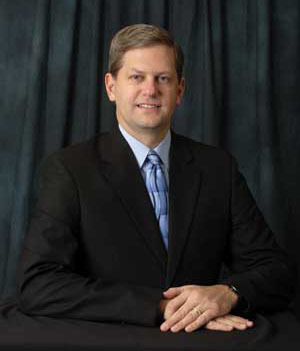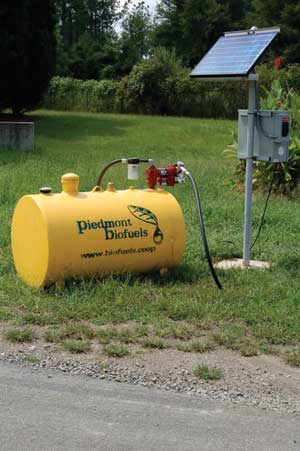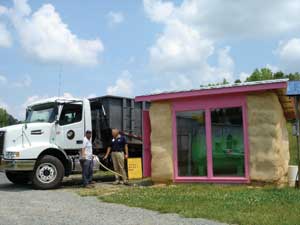Certified: Sustainable





May 25, 2007
BY Anduin Kirkbride McElroy
"Monocrops," "genetically modified organisms" (GMOs) "imported feedstocks" are words that, for those who advocate a more sustainable approach to production, taint the reputation of biofuels. Biodiesel produced in untenable ways often gets a bad rap in the media for its adverse environmental impacts, and justifiably so.. Unsustainable biofuels development has the potential to lead to disastrous consequences. Lucrative palm oil prices inspire the destruction of environmentally priceless rainforests to make way for palm plantations. Worldwatch Institute recently predicted that a surge in jatropha plantings for biodiesel production "will likely pull the last string of ecological collapse" in environmentally sensitive southwestern China, where natural forests are already shrinking rapidly. The transport of feedstock and fuel-whether it's across the United States or the Atlantic Ocean-is another source of carbon emissions.
The oft-used battle cry for the fuel, "Biodiesel is good for the environment, the economy and energy security," rings hollow in light of these happenings. In response, Worldwatch Institute is slated to release a paper this summer titled "Are Biofuels Sustainable?" Sustainability, as Worldwatch biofuels expert Suzanne Hunt explains it, refers in part to its economic benefits. "It is essential that the biofuels industry be developed in ways that spread the economic benefits as widely as possible, rather than replicating the disastrous concentration of wealth that has marked the petroleum industry in countries such as Nigeria and Saudi Arabia," Hunt says.
There are many definitions and aspects to sustainability. In 1987, the World Commission on Environment and Development defined sustainable development as that which "meets the needs of the present without compromising the ability of future generations to meet their own needs."
Several government entities are also researching how to make biofuels sustainable and are establishing criteria. In the Netherlands, a project group was commissioned to formulate sustainability criteria for the production and processing of biomass for energy, fuels and chemistry. The group submitted its final report, "Criteria for Sustainable Biomass Production," to the Dutch government in April.
In May, the energy division of the United Nations, UN-Energy, released a report intended to provide a framework for the worldwide use of bioenergy in sustainable methods. The report, "Sustainable Energy: A Framework for Decision Makers," was funded by the UN Food and Agriculture Organization. It examines bioenergy's relation to poverty, health, food security, agriculture, climate change, finance and trade.
Although the report emphasizes the benefits of bioenergy in reducing poverty, improving access to energy and promoting rural development, it also warns that "unless new policies are enacted to protect threatened lands, secure socially acceptable land use and steer bioenergy development in a sustainable direction overall, the environmental and social damage could in some cases outweigh the benefits."
To ensure that benefits from biofuels are realized, the report suggests that national decision makers create bioenergy policies that take into account availability, access, stability and utilization. It also recommends that governments weigh the economic and social costs of subsidizing bioenergy sources-in particular, liquid biofuels.
Certified Sustainable
Within the United States biodiesel industry, the discussion is just beginning. In December 2006, actress Daryl Hannah; Annie Nelson, wife of country singer Willie Nelson; and Kelly King, marketing and communications director of Pacific Biodiesel, formed the Sustainable Biodiesel Alliance (SBA). The mission of the alliance is to establish a certification program for biodiesel production, similar to certifications for organic products, fair trade or the Green Building Rating System: Leadership in Energy and Environmental Design (LEED). "It will be like a seal-you'll know it was approved," says Director Heidi Quante, who previously worked to develop a similar roadmap to green the lifecycle of bioplastics. She adds that the certification may be similar to the LEED system, in which there are different levels of ratings. "The reason [organic and fair trade certifications] changed the marketplace is because there was a consumer demand for it," Quante says. "I'm reaching out to the consumer to see if there is an interest, and there has been a loud 'yes.' We want to create a robust market for biofuel made from sustainably harvested feedstocks or waste grease. There are already so many examples of sustainable biofuels. We want to uplift, support and reward those."
Quante expects to have principles issued by the summer. "It's a multi-stakeholder process," she says. "We're hoping to have a rough draft or a template of criteria by the end of 2007. Once we have criteria, we'll have early adopters. We're in talks with early adopters-both refineries and users, such as large commercial fleets."
Though the criteria aren't developed yet, Quante says there are some standards that will likely be included, such as the use of local feedstocks and emission controls. "The problem with megaplants [that import feedstocks] is that we're supplanting reliance on one foreign import for another," Quante says, in reference to the importing of palm oil from Southeast Asia, which she considers similar to importing petroleum oil from the Middle East. "That's one reason why you need to ask where your biofuel is coming from."
In addition to criteria, the SBA also intends to develop a roadmap to help producers implement sustainable practices and achieve a sustainable certification. The certification isn't intended to be mandatory, but rather a set of guidelines. "Whoever wants to support sustainability in the biofuel world is more than welcome to do it," Quante says. "It's up to different entities to decide if they want to be sustainable or not."
For Quante, the logic is simple. "All foods [labels] include what's in it" she says. "We can easily do it for fuel. This allows consumers who love freedom of choice to decide what kind of green economy they want to support."
Because the group is so new, Donnell Rehagen, chief operating officer of the National Biodiesel Board (NBB), wasn't familiar with its work when he talked to Biodiesel Magazine. However, he says the NBB would be interested in working alongside the organization. "I'm sure the industry would be interested, and I'm sure the customers would be interested in the production practices of the folks involved in the production of biodiesel," he says.
At press time, the NBB hadn't addressed the sustainability issue. "Ninety percent of the biodiesel produced in the United States is produced by members of the NBB," Rehagen says. "I think that would speak volumes for our board to look at sustainability."
Rehagen indicates interest from the governing board but can't confidently predict what the likelihood is of the board actually addressing the issue. "I know the support is there for our industry to be one that supports sustainability, and I don't think it would be a hard challenge to adopt such a policy," he says. "A lot of issues have to come together for our goal of biodiesel production to be met. That's why it's up to our board and membership to come up with balance to help the industry grow while maintaining environmental aspects of biodiesel production."
Rehagen continues, "I think sustainability is an issue that's come up much more recently as you see the industry grow exponentially over the past several years. It definitely deserves attention, and I think you'll start to see attention given. The industry has positive goals to do the right thing. Sustainability is a key to the viability of the industry."
The topic may have prominence at the 2008 National Biodiesel Conference, Rehagen tells Biodiesel Magazine. "I'm not sure we'll have an entire track related to sustainability, but you'll see sustainability be a common theme," he says, noting that most of the topics and presentations will be decided later this summer.
A focus on sustainability in biodiesel could tackle several specific topics, from energy efficiency to a basic course on sustainability. "The larger biodiesel community uses the word sustainable, and we want them to understand the deeper meaning of that word so they can really be 'sustainable,' says Sara Hope Smith, who has been involved with various movements. She was an organizer for the Sustainable Biodiesel Summit, and is now pursuing a degree in renewables, energy efficiency and resource management.
As defined by Smith, sustainable biodiesel is produced and distributed regionally; sourced from locally harvested, non-GMO crops; and incorporates regionally specific attributes. It's in balance with the local energy systems. A relationship develops between the consumers and distributors, the producers and farmers, and ultimately throughout the community. "My personal vision is that we learn to live within the limits of the resources that we have," Smith says. "The thinking of limitlessness is what got us into trouble in the first place with petroleum. The American public needs to learn to live within its means, to balance our environmental and economic budgets. That's the heart of sustainability in many ways–living within means but having a big picture of what those means are."
Smith says biodiesel producers must evaluate all aspects of production. "Begin with regionally appropriate feedstocks from local, non-GMO sources," she says. "The next step is how you are producing it. Find ways to produce fuels that use less energy, cut out wasted efforts, or reuse the 'waste' as a resource. Finally, serve your local markets first."
Lyle Estill, a community-based biodiesel producer, has his own list of questions that producers should ask. "We cannot flatten the developing world and ship palm oil to America and call it sustainable," Estill says. For him, the most important criteria for sustainability would be utilizing local feedstocks, followed by energy sources. "What are you powering your plant with?" he asks. Is the plant fueled by renewable glycerin or is it coal-fired electricity?
Estill is the founder of Piedmont Biofuels in Pittsboro, N.C. Piedmont has become a model of sustainability and an example of how a community might fuel its needs in what Estill calls "hometown security." Those at Piedmont are self-described "energy fanatics." Solar panels are used for hot water heat, and photovoltaics generate electricity to power the fuel pumps. "We're selling inside a very narrow area," he says. "In Piedmont thinking, we would argue that there should be a 1 MMgy plant on the edge of every town in North Carolina. We would think that 100 1 MMgy plants is infinitely preferable to one 100 MMgy plant."
He continues, "From a sustainability standpoint, where we have lost our way is the assumption that big is always better-economies of scale. So you bring the palm oil in from Indonesia, then ship the biodiesel from Seattle to North Carolina. That's not sustainable; that's business as usual, and that's what got us into this mess. All industries across all sectors are starting to have to shift because you can't just spend more than you earn, and that's what we tend to do with energy today."
Anduin Kirkbride McElroy is a Biodiesel Magazine staff writer. Reach her at amcelroy@bbibiofuels.com or (701) 746-8385.
The oft-used battle cry for the fuel, "Biodiesel is good for the environment, the economy and energy security," rings hollow in light of these happenings. In response, Worldwatch Institute is slated to release a paper this summer titled "Are Biofuels Sustainable?" Sustainability, as Worldwatch biofuels expert Suzanne Hunt explains it, refers in part to its economic benefits. "It is essential that the biofuels industry be developed in ways that spread the economic benefits as widely as possible, rather than replicating the disastrous concentration of wealth that has marked the petroleum industry in countries such as Nigeria and Saudi Arabia," Hunt says.
There are many definitions and aspects to sustainability. In 1987, the World Commission on Environment and Development defined sustainable development as that which "meets the needs of the present without compromising the ability of future generations to meet their own needs."
Several government entities are also researching how to make biofuels sustainable and are establishing criteria. In the Netherlands, a project group was commissioned to formulate sustainability criteria for the production and processing of biomass for energy, fuels and chemistry. The group submitted its final report, "Criteria for Sustainable Biomass Production," to the Dutch government in April.
In May, the energy division of the United Nations, UN-Energy, released a report intended to provide a framework for the worldwide use of bioenergy in sustainable methods. The report, "Sustainable Energy: A Framework for Decision Makers," was funded by the UN Food and Agriculture Organization. It examines bioenergy's relation to poverty, health, food security, agriculture, climate change, finance and trade.
Although the report emphasizes the benefits of bioenergy in reducing poverty, improving access to energy and promoting rural development, it also warns that "unless new policies are enacted to protect threatened lands, secure socially acceptable land use and steer bioenergy development in a sustainable direction overall, the environmental and social damage could in some cases outweigh the benefits."
To ensure that benefits from biofuels are realized, the report suggests that national decision makers create bioenergy policies that take into account availability, access, stability and utilization. It also recommends that governments weigh the economic and social costs of subsidizing bioenergy sources-in particular, liquid biofuels.
Certified Sustainable
Within the United States biodiesel industry, the discussion is just beginning. In December 2006, actress Daryl Hannah; Annie Nelson, wife of country singer Willie Nelson; and Kelly King, marketing and communications director of Pacific Biodiesel, formed the Sustainable Biodiesel Alliance (SBA). The mission of the alliance is to establish a certification program for biodiesel production, similar to certifications for organic products, fair trade or the Green Building Rating System: Leadership in Energy and Environmental Design (LEED). "It will be like a seal-you'll know it was approved," says Director Heidi Quante, who previously worked to develop a similar roadmap to green the lifecycle of bioplastics. She adds that the certification may be similar to the LEED system, in which there are different levels of ratings. "The reason [organic and fair trade certifications] changed the marketplace is because there was a consumer demand for it," Quante says. "I'm reaching out to the consumer to see if there is an interest, and there has been a loud 'yes.' We want to create a robust market for biofuel made from sustainably harvested feedstocks or waste grease. There are already so many examples of sustainable biofuels. We want to uplift, support and reward those."
Quante expects to have principles issued by the summer. "It's a multi-stakeholder process," she says. "We're hoping to have a rough draft or a template of criteria by the end of 2007. Once we have criteria, we'll have early adopters. We're in talks with early adopters-both refineries and users, such as large commercial fleets."
Though the criteria aren't developed yet, Quante says there are some standards that will likely be included, such as the use of local feedstocks and emission controls. "The problem with megaplants [that import feedstocks] is that we're supplanting reliance on one foreign import for another," Quante says, in reference to the importing of palm oil from Southeast Asia, which she considers similar to importing petroleum oil from the Middle East. "That's one reason why you need to ask where your biofuel is coming from."
In addition to criteria, the SBA also intends to develop a roadmap to help producers implement sustainable practices and achieve a sustainable certification. The certification isn't intended to be mandatory, but rather a set of guidelines. "Whoever wants to support sustainability in the biofuel world is more than welcome to do it," Quante says. "It's up to different entities to decide if they want to be sustainable or not."
For Quante, the logic is simple. "All foods [labels] include what's in it" she says. "We can easily do it for fuel. This allows consumers who love freedom of choice to decide what kind of green economy they want to support."
Because the group is so new, Donnell Rehagen, chief operating officer of the National Biodiesel Board (NBB), wasn't familiar with its work when he talked to Biodiesel Magazine. However, he says the NBB would be interested in working alongside the organization. "I'm sure the industry would be interested, and I'm sure the customers would be interested in the production practices of the folks involved in the production of biodiesel," he says.
At press time, the NBB hadn't addressed the sustainability issue. "Ninety percent of the biodiesel produced in the United States is produced by members of the NBB," Rehagen says. "I think that would speak volumes for our board to look at sustainability."
Rehagen indicates interest from the governing board but can't confidently predict what the likelihood is of the board actually addressing the issue. "I know the support is there for our industry to be one that supports sustainability, and I don't think it would be a hard challenge to adopt such a policy," he says. "A lot of issues have to come together for our goal of biodiesel production to be met. That's why it's up to our board and membership to come up with balance to help the industry grow while maintaining environmental aspects of biodiesel production."
Rehagen continues, "I think sustainability is an issue that's come up much more recently as you see the industry grow exponentially over the past several years. It definitely deserves attention, and I think you'll start to see attention given. The industry has positive goals to do the right thing. Sustainability is a key to the viability of the industry."
The topic may have prominence at the 2008 National Biodiesel Conference, Rehagen tells Biodiesel Magazine. "I'm not sure we'll have an entire track related to sustainability, but you'll see sustainability be a common theme," he says, noting that most of the topics and presentations will be decided later this summer.
A focus on sustainability in biodiesel could tackle several specific topics, from energy efficiency to a basic course on sustainability. "The larger biodiesel community uses the word sustainable, and we want them to understand the deeper meaning of that word so they can really be 'sustainable,' says Sara Hope Smith, who has been involved with various movements. She was an organizer for the Sustainable Biodiesel Summit, and is now pursuing a degree in renewables, energy efficiency and resource management.
As defined by Smith, sustainable biodiesel is produced and distributed regionally; sourced from locally harvested, non-GMO crops; and incorporates regionally specific attributes. It's in balance with the local energy systems. A relationship develops between the consumers and distributors, the producers and farmers, and ultimately throughout the community. "My personal vision is that we learn to live within the limits of the resources that we have," Smith says. "The thinking of limitlessness is what got us into trouble in the first place with petroleum. The American public needs to learn to live within its means, to balance our environmental and economic budgets. That's the heart of sustainability in many ways–living within means but having a big picture of what those means are."
Smith says biodiesel producers must evaluate all aspects of production. "Begin with regionally appropriate feedstocks from local, non-GMO sources," she says. "The next step is how you are producing it. Find ways to produce fuels that use less energy, cut out wasted efforts, or reuse the 'waste' as a resource. Finally, serve your local markets first."
Lyle Estill, a community-based biodiesel producer, has his own list of questions that producers should ask. "We cannot flatten the developing world and ship palm oil to America and call it sustainable," Estill says. For him, the most important criteria for sustainability would be utilizing local feedstocks, followed by energy sources. "What are you powering your plant with?" he asks. Is the plant fueled by renewable glycerin or is it coal-fired electricity?
Estill is the founder of Piedmont Biofuels in Pittsboro, N.C. Piedmont has become a model of sustainability and an example of how a community might fuel its needs in what Estill calls "hometown security." Those at Piedmont are self-described "energy fanatics." Solar panels are used for hot water heat, and photovoltaics generate electricity to power the fuel pumps. "We're selling inside a very narrow area," he says. "In Piedmont thinking, we would argue that there should be a 1 MMgy plant on the edge of every town in North Carolina. We would think that 100 1 MMgy plants is infinitely preferable to one 100 MMgy plant."
He continues, "From a sustainability standpoint, where we have lost our way is the assumption that big is always better-economies of scale. So you bring the palm oil in from Indonesia, then ship the biodiesel from Seattle to North Carolina. That's not sustainable; that's business as usual, and that's what got us into this mess. All industries across all sectors are starting to have to shift because you can't just spend more than you earn, and that's what we tend to do with energy today."
Anduin Kirkbride McElroy is a Biodiesel Magazine staff writer. Reach her at amcelroy@bbibiofuels.com or (701) 746-8385.
Advertisement
Advertisement
Advertisement
Advertisement
Upcoming Events





